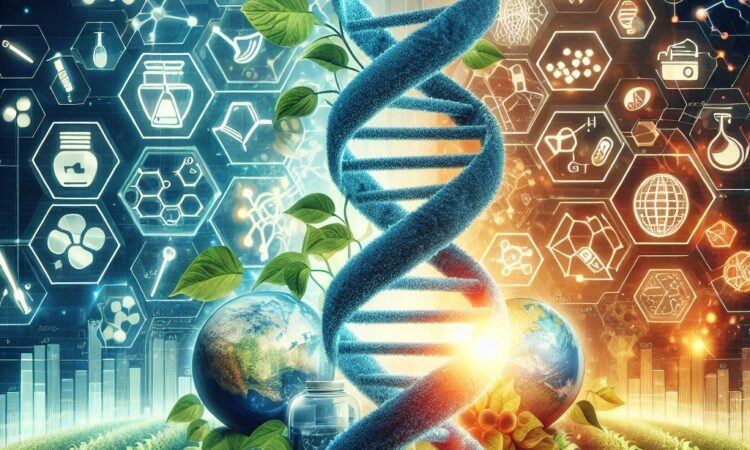Biotechnology and Genetic Engineering: A Revolution in Healthcare, Agriculture, and Beyond
Biotechnology and genetic engineering are rapidly transforming our world, holding immense potential to address some of humanity’s most pressing challenges, including disease prevention, food security, and environmental sustainability.
Biotechnology: Harnessing the Power of Living Organisms
Biotechnology encompasses a wide range of techniques that utilize living organisms or their components to produce valuable products or processes. From the production of antibiotics using fermentation to the development of biofuels from renewable sources, biotechnology is revolutionizing industries across the globe.
Genetic engineering, a subset of biotechnology, takes this manipulation a step further by directly altering the genetic makeup of organisms. This powerful tool has enabled scientists to create genetically modified (GM) crops with enhanced resistance to pests and diseases, leading to increased agricultural productivity.
Transforming Healthcare with Biotechnology
Biotechnology is playing a pivotal role in advancing healthcare, leading to the development of novel treatments and diagnostic tools. Recombinant DNA technology, a cornerstone of biotechnology, has enabled the production of life-saving drugs, such as insulin for diabetics and human growth hormone for children with deficiencies.
Genetic engineering is also revolutionizing gene therapy, a promising approach to treating genetic disorders by correcting faulty genes. Additionally, biotechnology-derived tools, such as monoclonal antibodies, are enhancing cancer treatment by targeting specific cancer cells while minimizing harm to healthy tissues.
Addressing Food Security with Biotechnology
Biotechnology is poised to address the global challenge of food security by increasing crop yields, enhancing nutritional value, and reducing post-harvest losses. GM crops, as mentioned earlier, play a crucial role in boosting agricultural productivity, particularly in regions facing resource constraints.
Biotechnology is also being applied to develop crops with improved nutritional profiles, such as Golden Rice, which contains enriched levels of beta-carotene, a precursor to vitamin A. This innovation has the potential to combat vitamin A deficiency, a leading cause of blindness in developing countries.
Environmental Sustainability through Biotechnology
Biotechnology is not only transforming healthcare and agriculture but also holds promise for addressing environmental challenges. Bioremediation, the use of living organisms to clean up contaminated environments, is gaining traction as a sustainable approach to pollution control.
Additionally, biotechnology is being explored to develop renewable energy sources, such as biofuels derived from plant biomass. These alternatives have the potential to reduce our reliance on fossil fuels and mitigate climate change.
Ethical Considerations and the Path Forward
Despite the immense potential of biotechnology and genetic engineering, ethical concerns surrounding their use have been raised. These include potential risks to human health and the environment, along with the social and economic implications of these technologies.
As we navigate this rapidly evolving field, it is crucial to engage in open and informed discussions about the ethical and societal implications of biotechnology. Rigorous scientific research, coupled with transparent public dialogue, will be essential in ensuring that these powerful tools are used responsibly and equitably for the benefit of humanity.

